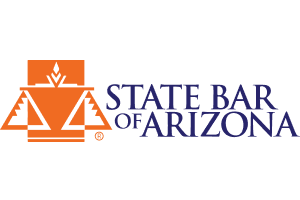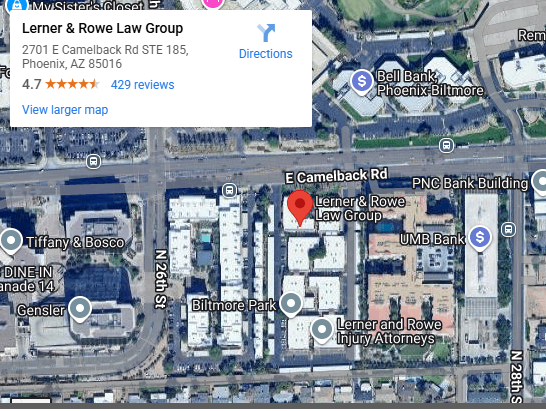Lawyers Who Care.
Phoenix White Collar Crime Defense Lawyer
Allegations of fraud or financial crime can jeopardize your freedom, career, license, and immigration status. At Arizona Justice Law Group, Zalman Sapad defends professionals, business owners, and employees in state and federal white-collar investigations—moving quickly to protect data, control exposure, and position your case for dismissal, diversion, or a negotiated resolution.
What Counts as “White Collar Crime” in Arizona (Statutes)
White-collar cases are typically non-violent and deception-based. Common Arizona charges include:
- Fraudulent Schemes — A.R.S. § 13-2310 (broad “scheme or artifice to defraud,” often charged in investment, real-estate, or vendor billing cases).
- Theft (incl. theft by misrepresentation) — A.R.S. § 13-1802.
- Theft by Extortion (blackmail) — A.R.S. § 13-1804.
- Forgery — A.R.S. § 13-2002 (altered checks, fabricated documents, false endorsements).
- Identity Theft — A.R.S. § 13-2008.
- Credit-Card Crimes — A.R.S. §§ 13-2101–2105 (definitions; theft, forgery, and fraudulent use of a credit card).
- Trafficking in Stolen Property — A.R.S. § 13-2307.
- Computer Tampering (hacking/unauthorized access) — A.R.S. § 13-2316.
- Racketeering/Enterprise crimes — A.R.S. § 13-2312 (with “racketeering” defined at § 13-2301).
- Money Laundering — A.R.S. § 13-2317 (conceal or disguise proceeds; structuring; use of shell entities).
- Organized Retail Theft — A.R.S. § 13-1819 (can be a felony regardless of value).
Federal overlays (common in multi-state or bank/market matters): mail fraud, wire fraud, bank fraud, tax offenses, securities fraud, conspiracy, and federal money-laundering. State and federal cases can run in parallel.
Felony Classes, Sentencing & Restitution (What’s Realistically at Stake)
Arizona felonies range from Class 6 (least severe) to Class 2 (most severe). Sentencing is governed by A.R.S. §§ 13-701–13-703 (first-time vs. repetitive offenders; mitigated–aggravated ranges). Many white-collar crimes also require mandatory restitution (A.R.S. § 13-603(C); procedures at § 13-804).
Aggravators that push terms higher: large dollar loss, multiple/vulnerable victims (e.g., seniors), leadership/organization of a scheme, sophisticated planning, prior similar convictions.
Mitigators: early restitution, clean record, cooperation, documented good-faith reliance on professional advice, and strong community/ employment history.
Limitations (time to charge): generally governed by A.R.S. § 13-107. Certain periods can be tolled (paused) if a suspect is out of state, the offense is not reasonably discoverable, or identity is unknown, per statute.
How Prosecutors Build These Cases (and How We Counter)
What they rely on: bank/merchant records, email and device forensics, ledger analysis, witness interviews, search warrants/subpoenas, grand jury. State AG, county attorneys, and (when applicable) federal agencies (FBI/IRS/SEC) often collaborate.
What we do first (Day 1–30):
- Preserve & Collect Evidence: litigation holds; image devices; pull bank feeds, POS logs, cloud drives.
- Early Exposure Map: who knows what; who has the records; potential civil, licensing, or regulatory spillovers.
- Privilege & Work-Product: route internal reviews through counsel to protect sensitive assessments.
- Quiet Advocacy: where appropriate, make targeted proffers (without admissions) to shape charging decisions.
- Defense Experts: forensic accountants/IT examiners to re-trace flows, reconstruct ledgers, and flag innocent or industry-standard explanations.
Defense Angles that Move the Needle (Arizona-Specific)
- Intent/Knowledge Gaps: Many charges (e.g., § 13-2310, § 13-2002) require knowing, intentional deception. We demonstrate good-faith mistakes, negligence (not a crime), or reliance on accountants/attorneys.
- Contract ≠ Crime: A busted deal isn’t automatically fraud; we separate civil breach from criminal intent with contemporaneous emails, SOWs, and change orders.
- Search & Seizure/ Subpoena Limits: Suppress overbroad digital seizures or defective warrants; challenge subpoena scope and privilege.
- Computers & Authorship: Under § 13-2316, access must be unauthorized; we show permission/ shared credentials or lack of proof linking actions to the accused.
- Credit-Card Elements: For §§ 13-2102–2105, prove the card/data wasn’t “stolen,” or that use was authorized/ reasonably believed authorized.
- Money-Laundering Proof: § 13-2317 demands proof the funds were criminal proceeds and the accused knew it; business-purpose and source-of-funds evidence can defeat that.
- Racketeering/Enterprise: § 13-2312 requires an enterprise and a pattern of racketeering; we attack “pattern,” “enterprise,” and causation.
Restitution strategy: Early, verifiable repayment plans can significantly shift plea posture. We coordinate civil releases where appropriate—carefully, to avoid admissions.
Quick Hypotheticals (Applying the Law to Real Life)
- Bookkeeper vs. “Fraudulent Schemes” (A.R.S. § 13-2310): A bookkeeper moves reimbursements without manager countersignature. Emails show confusion over policy—not intent to defraud. Result: scheme count dismissed.
- Computer Tampering (A.R.S. § 13-2316): An employee exports client lists before termination. Device logs show shared credentials and broad download permissions. Outcome: charge reduced to a civil trade-secret dispute; criminal case declined.
- Money-Laundering (A.R.S. § 13-2317): Investor funds routed through an LLC look suspicious. Our forensic shows a legitimate revenue stream and tax documentation; flows were commingled but lawful. Result: laundering count dropped.
Inside Phoenix-Area Practice (What We See in Court)
- Grand Jury First: Complex matters often start with a grand jury. We submit pre-indictment letters to correct the record and present exculpatory materials.
- Parallel Tracks: Expect criminal + civil + licensing. We time disclosures to minimize cross-risk and protect your Fifth Amendment position.
- Discovery is Data-Heavy: Courts expect indexed, searchable productions. We use defensible review tools so nothing favorable gets buried.
- Diversion/Deferred Prosecution: Rare in large-loss cases, but some jurisdictions will consider deferred prosecution for first-time, lower-loss matters with full restitution and compliance training.
Sentencing & Negotiation Playbook
- Loss & Victim Counts Drive Outcomes: We rigorously re-calculate “loss” (exclude interest/ speculative profits; credit recovered assets) and challenge “victim” tallies to reduce ranges.
- Class 6 Undesignated Options: When available, we push for undesignated Class 6 outcomes that may later be designated a misdemeanor after successful completion.
- Record Relief: Post-disposition, many clients may be eligible for a set-aside (A.R.S. § 13-905) and, in numerous situations, record sealing (A.R.S. § 13-911) after the statutory wait—no guarantee, but critical for employment and licensing.
Practical Do’s and Don’ts (Protect Yourself Now)
- Do not talk to investigators without counsel.
- Preserve emails, chats, ledgers, and device data; don’t “clean” files.
- List advisors (CPA, counsel) and gather written guidance that informed decisions.
- Stop the bleeding: If appropriate, pause the conduct at issue and implement compliance fixes.
- Insurance & Indemnity: Check D&O/E&O and tender notices on time.
Why Call Zalman Sapad Early
- Rapid Response: We stabilize contact with agencies and counterpart counsel to reduce risk of custodial arrests and unplanned interviews.
- Forensic Muscle: Defense-side accountants and data experts to reconstruct truth from messy records.
- Targeted Advocacy: We aim to shape charging decisions before they happen, not just react after indictment.
- Candid Counsel: No promises or guarantees—just clear risk analysis and a plan that fits your facts, budget, and goals.
Get a Defense Plan in Motion
📞 (602) 730-1756 | 📧 ArizonaJusticeLawyer@gmail.com | Contact Arizona Justice Law
We’ll review your exposure, preserve what helps you, and challenge what doesn’t. The sooner you call, the more options we have.







